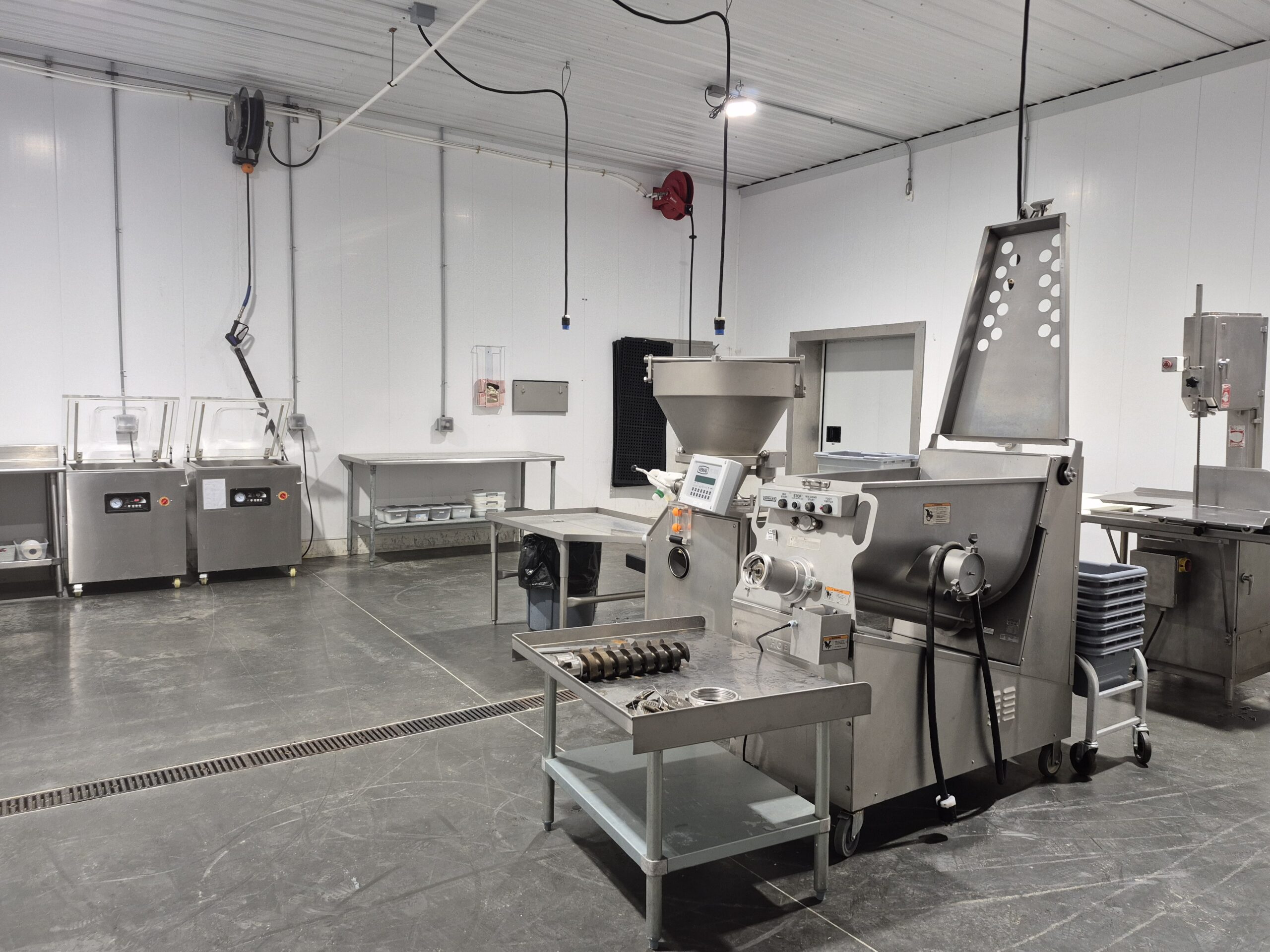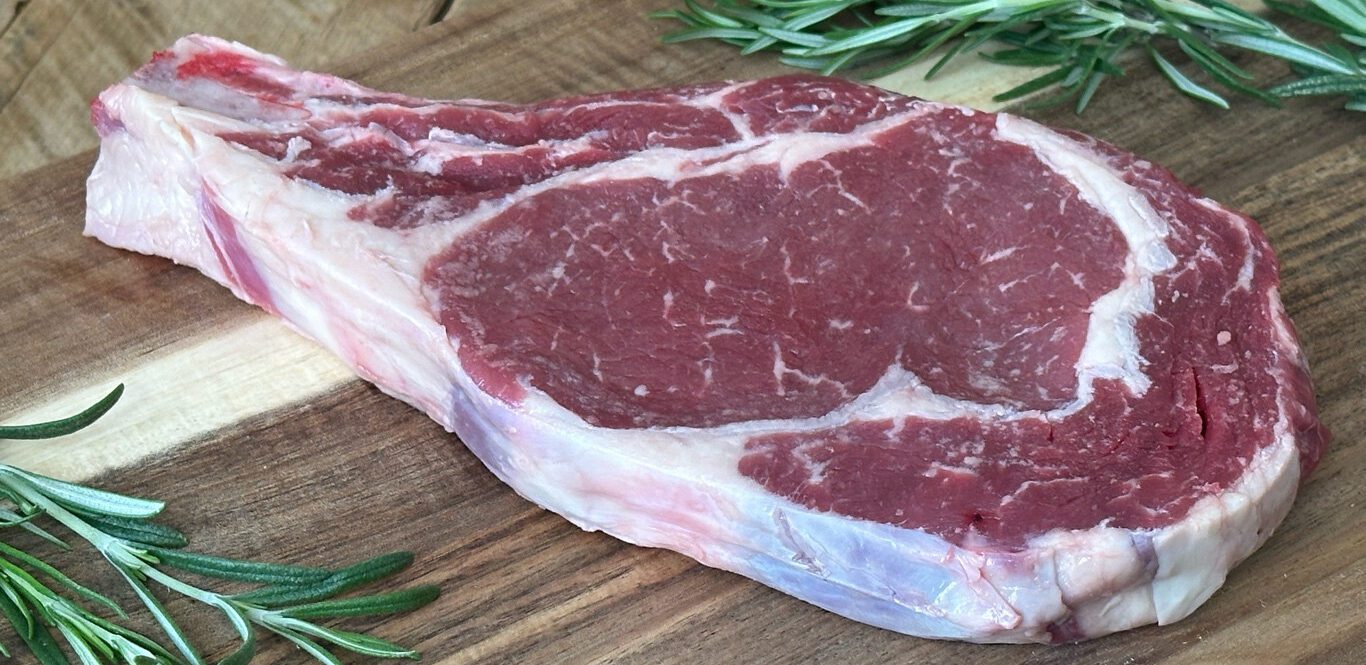Delicacy Meats: Strengthening Supply Chains Through Vertical Integration
From startup to profitability in 12 months
A BUSINESS CONSULTING CASE STUDY
When Dutch Meadows, a farm that sells directly to customers, wanted more control over meat processing, they partnered with their beef supplier and community member Omar King. This led to the creation of Delicacy Meats—a processing facility designed to improve operations, maintain quality, and create new market opportunities. Within a year, the business made a big impact on their community.
“We wanted better control over our processing—better quality, more consistency, and the ability to create our own recipes. We used to be limited by external processors. Now, we can flow products faster and deliver better quality to our customers."
– Dave Stolzfus
The Challenge and Goal
Meat processing can be a major bottleneck in the supply chain, especially for small farms that sell directly to consumers. There aren’t many processing facilities, the rules are strict, and relying on outside processors often causes delays.
Dutch Meadows’ beef was their top sales driver, yet they kept facing the same challenges in meat processing. External processors limited their ability to expand, denied custom recipe requests, and had ongoing issues with packaging and seals. They needed a way to maintain quality, speed up processing, and prevent inventory shortages.
The solution was vertical integration—taking control of meat processing by partnering with Omar King. This decision supported Dutch Meadows' long-term goal of providing higher-quality food and better serving their community.
The Power of Vertical Integration
Handling processing in-house gave Dutch Meadows more control over the entire process. They could ensure organic and natural ingredients, develop unique recipes, and keep inventory steady.
However, starting a meat processing facility isn’t easy—it requires specialized equipment, trained workers, and government approval. Instead of taking out a loan, Dutch Meadows and Omar were in a position to fund the project themselves.
"It definitely made cash tighter, but it kept us from paying interest,” Dave said. “No regrets."
They also had key advantages that made success possible:
- A good source of capital.
- A skilled workforce trained with the help of Olde Tyme Meats, the butcher shop of fellow Good Roots client The Family Cow.
- A reliable anchor customer, with Dutch Meadows as the primary buyer.
- A structured ownership model where Omar holds 60% and Dutch Meadows 40%, striking a balance that keeps both invested and decision-making efficient.

Delicacy Meats invested in quality equipment up front to avoid costly repairs down the road.
Structuring Success
Good Roots helped Delicacy Meats get organized by setting up a startup budget and running a feasibility study to see if the business could be financially successful. They also helped Dutch Meadows and Omar clarify ownership roles, set up management systems, and define clear business goals. Regular ownership meetings ensured structured decision-making, while industry benchmarks helped track progress.
Good Roots set up their books in a way that worked for Omar while also helping him quickly assess profitability. To support long-term success, they introduced key performance indicators (KPIs)—metrics that helped Omar monitor finances and labor efficiency. These tools made it easier to make smart business decisions and set the company up for sustainable growth.
Achieving Profitability
Delicacy Meats opened in January 2024, began full operations in June, and broke even by July—a huge achievement in an industry where most startups expect losses for at least a year. Their rapid success was due to smart planning, careful money management, and an efficient operational structure.
Investing in high-quality equipment early on helped prevent costly breakdowns and delays. Additionally, support from the community, like Olde Tyme Meats, was invaluable, allowing Omar and his team to build expertise quickly. Despite having no prior experience in meat processing, he quickly adapted by using financial tracking tools to guide operations and improve efficiency.
The Results and Future Outlook
The partnership has already delivered real benefits for both Dutch Meadows and Delicacy Meats:
- Improved product quality and consistency for customers
- More efficient inventory flow, reducing handling and repackaging
- A valuable local resource—Delicacy Meats now provides USDA meat processing services in an area where such facilities are scarce
Looking ahead, the focus will be on long-term profitability. While vertical integration has improved efficiency, tracking its financial impact over time will be key.
Food for Thought: Delicacy Meats' Startup Strategy:
- Vertical Integration: Taking control of their meat processing improved Dutch Meadows’ product quality, consistency, and inventory flow while reducing reliance on external processors.
- Smart Financial Planning: Self-funding the processing facility helped avoid debt and interest payments, while investing in quality equipment early reduced costly breakdowns.
- Partnership Model: A 60/40 ownership split between Dutch Meadows and Delicacy Meats’ Omar King ensured shared investment, responsibility, and streamlined decision-making.
- Operational Efficiency: Clear business goals, structured ownership meetings, and tracking key performance indicators (KPIs) supported smart financial decisions and sustainable growth.
- Relationship Building: Establishing trust with inspectors, vendors, and customers created a strong foundation for success.
Lessons and Advice
For those considering a similar approach, Dave and Omar offer essential advice.
"Good planning and strong relationships are everything," Dave shares. "Your inspectors, customers, vendors—you need to build trust at every level."
“Respect your inspectors,” Omar adds. “If you work with them, they’ll work with you. That’s been one of the biggest lessons for me."
For Dutch Meadows and Delicacy Meats, vertical integration wasn’t just a business decision—it transformed their operations, strengthened their supply chain, and helped them serve their community better than ever before.
